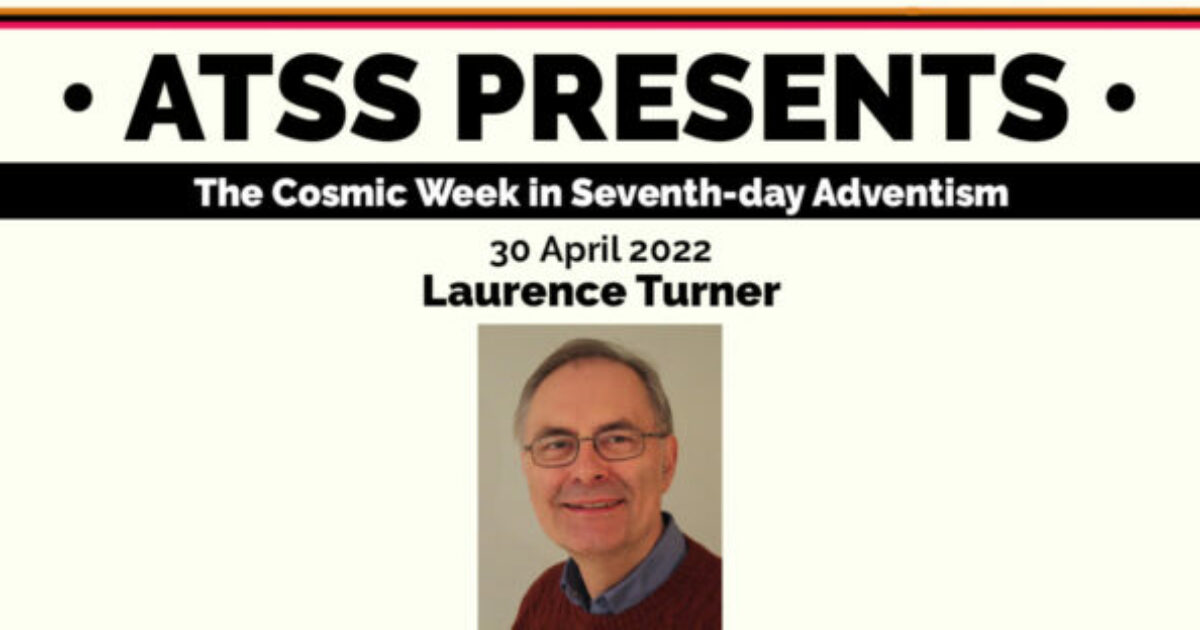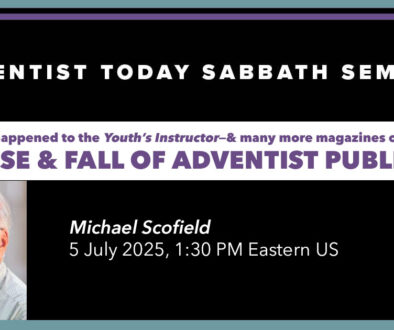ATSS Presents: Laurence Turner on Adventism and the Cosmic Week
15 May 2022 |
Seventh-day Adventism arose in the aftermath of the Great Disappointment of 1844. Despite numerous “proofs” culled from Scripture, used confidently to pinpoint the date of the second advent to October 22, 1844, Christ did not return. This failure of chronological calculations ensured that official Adventism would never predict a precise time for Christ’s return but rather maintain faith in its imminence. However, within unofficial Adventist tradition the fascination with eschatology, refining “imminence” to a more specific time, lived on. This week’s Adventist Today Sabbath Seminar focuses on one facet of this tradition, namely the “cosmic week.” With some variations, this holds that the seven days of creation week in Genesis 1 prefigure seven thousand years of earth’s history. So, just as the six days of God’s creation were followed by the Sabbath on the seventh day, so six thousand years of human history will be followed by a final millennium (Rev 20), that is, the seventh millennium since creation. This view has recently gained traction in popular Adventism, promoted in particular by online ministries. Several claim that the end of the six thousand years and beginning of the seventh will occur in (approximately) 2027, and thus pinpoint the date for Christ’s return. What follows provides a brief initial assessment of this belief.




